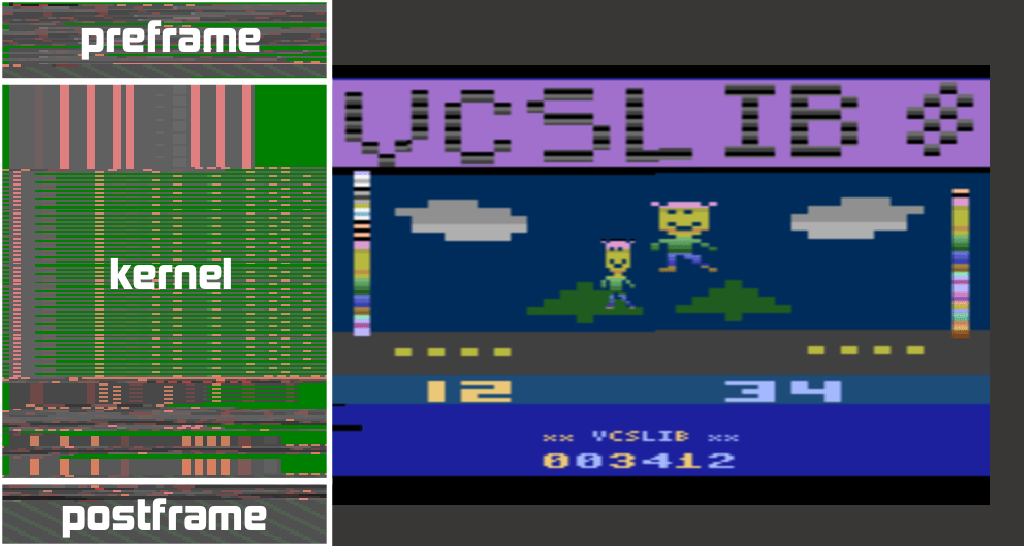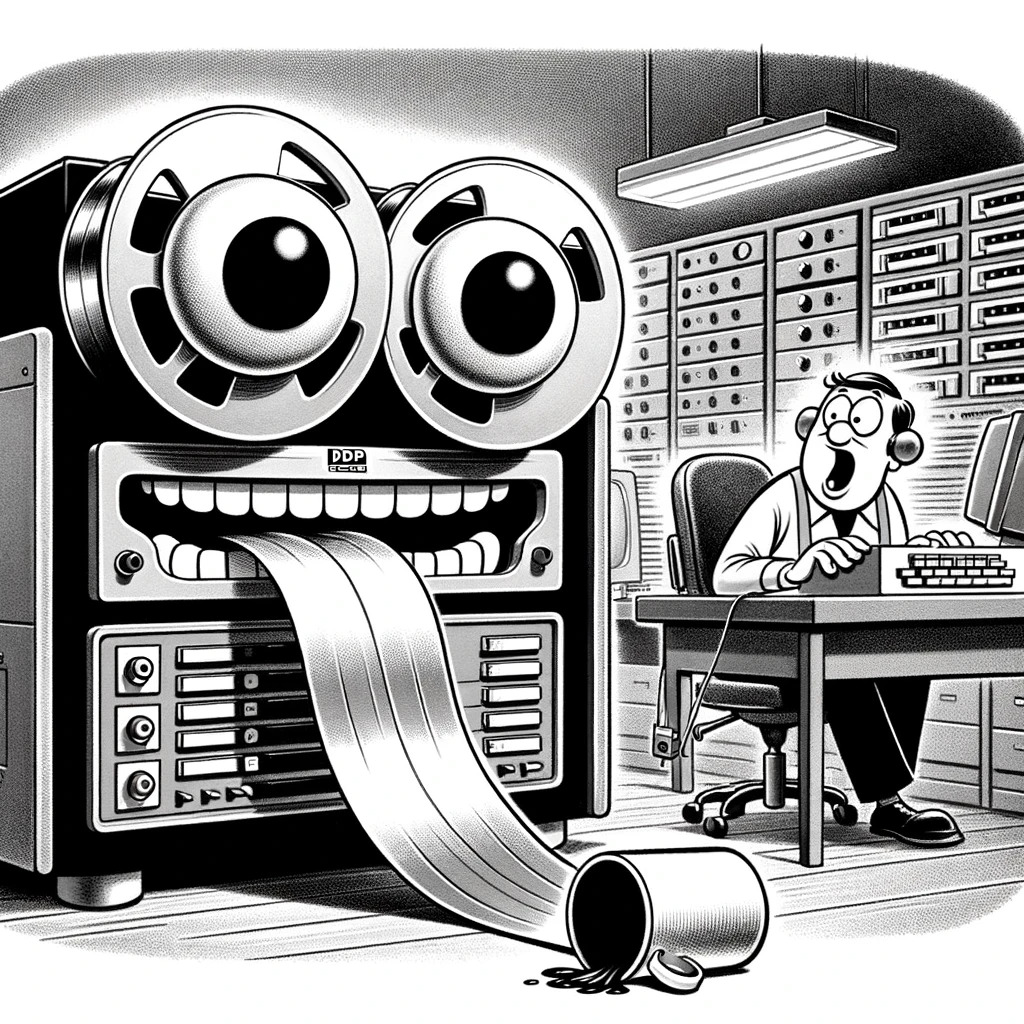Posted in 2023
VCSLib, A C Library for the Atari 2600
- 05 November 2023
The previous blog post, “Your 8-bit System is a Weird PDP-11”, discussed several challenges faced when developing in C, especially for the Atari 2600/VCS.
We’ve overcome those challenges as best we can, and now we can introduce VCSLib, a support library for programming the Atari 2600/VCS with CC65.
Let’s take a tour.

Your 8-bit System is a Weird PDP-11
- 28 October 2023
The C programming language is the de facto portable, low-level language. It was written with the PDP-11 minicomputer in mind.
The PDP-11 informed the x86 instruction set, and so in a way, we’re still using them. Today’s computers are so complex that they have to bend over backwards to emulate the simple architecture for which C was designed. It leads some to ask if C is a good fit for modern systems.
Likewise, the PDP-11 doesn’t have a lot in common with 80s arcade games. Game programmers in the 8-bit era wrote code predominantly in assembly language. The C language was around, but mostly in UNIX systems. If anything, they would have been more likely to use a homespun language like Zgrass or even FORTH.

Exploring the New 6502 Compiler Based on LLVM
- 16 May 2023
Today, homebrew developers enjoy the convenience of programming the 6502 in C. However, the 6502 is a very different architecture than modern CPUs, and was never designed for C programming.
The 6502 has a small number of 8-bit registers, and limited addressing modes that cannot access the stack efficiently. This makes it difficult to retarget a modern C compiler to the 6502.
In a previous blog post, we explored the process of retargeting a microcontroller C compiler (SDCC) to the 6502. This required development of a brand new code generation backend, which required looking at over 80,000 lines of code. Gabriele Gorla has since improved it to the point where it has been merged into the main SDCC repository.
Will ChatGPT replace retro programmers?
- 22 March 2023
An LLM (Large Language Model) is an artificial neural network that statistically models the structure of text. It’s typically trained on a huge corpus of textual data, and tuned for a specific task, like an AI chat assistant (ChatGPT) or a programming helper (Copilot).
I created 8bitworkshop to make it easy for people to explore obsolete technologies. So I wondered: is the latest AI technology going to make the programmers of obsolete technologies obsolete themselves?
tl;dr: Not yet.